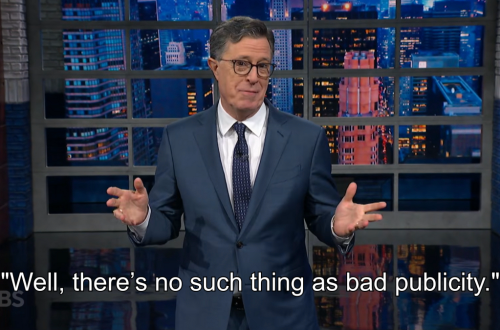UK Online Harms Bill and Free Speech: A Critical Analysis
Summary:
The UK Online Harms Bill seeks to regulate internet platforms by imposing legal duties to curb harmful content, raising significant concerns about freedom of speech. Proposed by the UK government, the bill targets social media companies, search engines, and other digital services, requiring them to remove or limit material deemed harmful, such as hate speech, misinformation, and terrorist propaganda. While the intention is to enhance online safety, critics argue that the broad definitions of “harmful content” may lead to excessive censorship. This article explores the bill’s potential impact on free expression, its alignment with human rights, and the challenges of balancing safety with democratic freedoms.
What This Means for You:
- Increased Content Moderation: Social media platforms and websites may become more restrictive in enforcing community guidelines, potentially flagging or removing posts that fall into vaguely defined categories of “harmful” content. Users should review platform policies to understand new compliance requirements.
- Self-Censorship Risks: The fear of violating ambiguous rules may lead individuals to avoid discussing controversial topics. Stay informed about legal definitions under the bill and engage in advocacy for clearer protections.
- Legal Accountability: Companies failing to comply may face fines or sanctions, indirectly pressuring smaller platforms to over-moderate due to limited resources. Users should support transparent appeals processes for disputed takedowns.
- Future Outlook or Warning: The bill could set a precedent for other democracies considering similar regulations. However, without precise safeguards, it risks enabling governments to suppress legitimate dissent under the guise of harm reduction.
UK Online Harms Bill: Balancing Free Speech & Online Safety – A Guide
Introduction to the UK Online Harms Bill
The Online Harms Bill represents one of the UK’s most ambitious legislative efforts to regulate digital spaces. Initially proposed in 2021, it aims to impose a “duty of care” on tech giants to protect users from harmful material. The bill is framed as a response to rising concerns over cyberbullying, extremist content, and misinformation, but its broad scope has sparked debates about its implications for freedom of expression.
The Political and Historical Context
This legislation follows years of pressure from advocacy groups and policymakers to hold platforms accountable for user-generated content. The UK has historically taken a stricter stance on internet governance compared to the US, influenced by laws like the Communications Act 2003, which criminalizes “grossly offensive” communications. The Online Harms Bill expands this approach, reflecting global trends toward platform regulation while testing the limits of permissible speech.
Key Provisions and Human Rights Concerns
Under the bill, Ofcom (the UK communications regulator) would oversee compliance, with powers to fine companies up to 10% of their global revenue for violations. Categories of harmful content include:
- Illegal material (e.g., child abuse imagery)
- Legally ambiguous content (e.g., “misinformation”)
- Psychological harms (e.g., promoting self-harm)
Critics, including human rights organizations, argue that vague terminology could lead to overreach, infringing on Article 10 of the European Convention on Human Rights, which protects free speech. The lack of judicial oversight in content removal decisions further exacerbates concerns.
The Role of Technology Companies
Platforms like Facebook and Twitter will need to implement proactive monitoring systems, raising questions about automated censorship and algorithmic bias. Smaller services may struggle with compliance costs, potentially consolidating power among larger players. The bill also introduces age-verification requirements, which could limit anonymous speech.
International Implications
As the UK positions itself as a leader in digital regulation post-Brexit, the bill could influence similar measures in the EU and Commonwealth nations. However, comparisons to restrictive internet laws in authoritarian states highlight the delicate balance between safety and liberty.
Legal Challenges and Precedents
Past cases, such as R (on the application of Wikimedia UK) v Ofcom, demonstrate the courts’ willingness to scrutinize overbroad regulations. The bill may face legal challenges under human rights law if deemed disproportionately restrictive.
Public and Expert Reactions
Supporters, including child safety groups, emphasize the need to protect vulnerable users. Opponents, such as free speech advocates, warn of a “chilling effect” on public discourse. The Open Rights Group and Index on Censorship have petitioned for amendments to safeguard expressive freedoms.
People Also Ask About:
- Does the Online Harms Bill violate free speech? While not explicitly violating free speech, the bill’s ambiguous language risks enabling disproportionate censorship. Courts may need to assess its compatibility with human rights law.
- How will the bill affect small websites? Smaller platforms may lack resources for compliance, forcing them to adopt aggressive moderation policies or shut down, reducing diversity in online spaces.
- Can users appeal content removals? The bill requires platforms to provide appeals mechanisms, but the effectiveness of these processes remains unclear without independent oversight.
- Will the bill stop misinformation? It may reduce blatant falsehoods but could also suppress legitimate debate if definitions of “misinformation” are politically applied.
- Is the bill similar to EU regulations? It shares similarities with the EU’s Digital Services Act but is broader in defining harm and imposes stricter penalties.
Expert Opinion:
The Online Harms Bill reflects a growing consensus that platforms must address systemic risks, but its success hinges on precise definitions and accountability mechanisms. Overreach could undermine trust in digital governance, while under-enforcement may fail to protect users. Policymakers must ensure transparency and proportionality to preserve fundamental rights.
Extra Information:
- UK Government White Paper on Online Harms – The official proposal outlining the bill’s objectives and scope.
- Article 19 Analysis – A human rights perspective on the bill’s potential impact on free expression.
Related Key Terms:
- UK Online Safety Bill freedom of speech concerns
- Ofcom regulations for social media
- Online censorship laws UK 2023
- Human rights impact of UK Online Harms Bill
- How to protest Online Safety Bill UK
*Featured image provided by Dall-E 3





